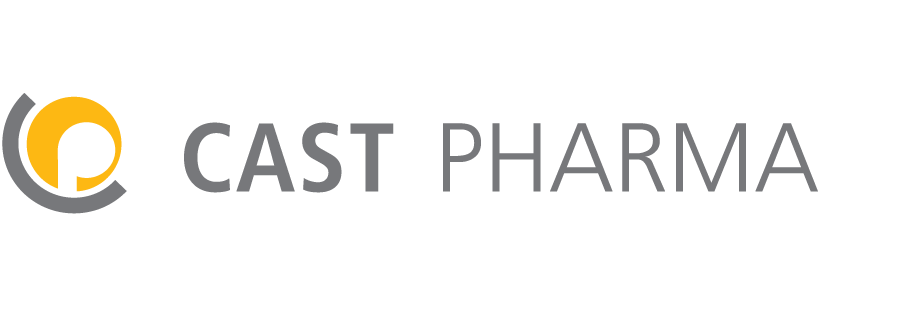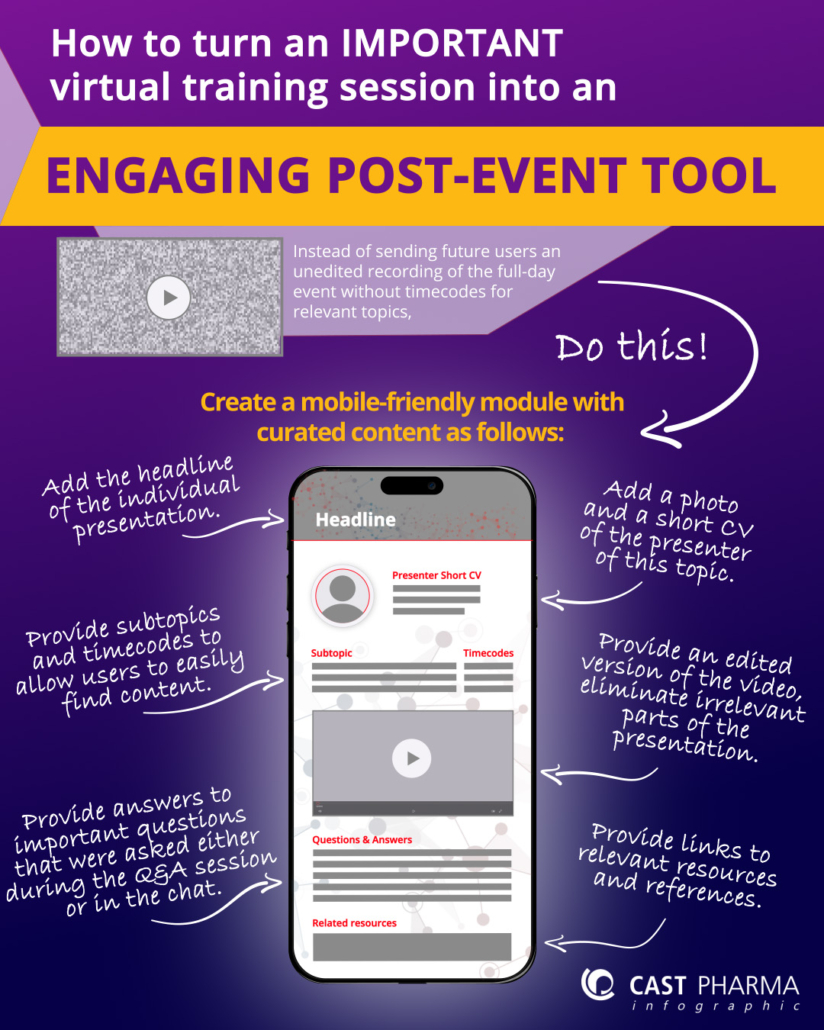From static training to strategic learning: how interactive modules transform medical knowledge transfer
Medical affairs teams face a persistent challenge: thousands of dollars invested in virtual training sessions yield disappointing engagement results, while critical skills like objection handling remain underdeveloped through static materials. This disconnect between training investment and practical application has created a knowledge gap that affects everything from product launches to ongoing medical information support.
This gap exists because traditional training methods operate on an outdated assumption—that information transfer equals skill development. However, when MSLs encounter complex healthcare professional objections or miss crucial virtual sessions, they need more than raw information; they need practical tools for real-world application.
Interactive learning modules, built with platforms like Articulate Rise, address this fundamental challenge by transforming passive content consumption into active skill development. Rather than simply delivering information, these modules create experiences that mirror the actual situations medical professionals encounter in their work.
Let’s look at some key use cases where these interactive modules are closing the gap between knowledge and practical application.
Use case 1
Interactive objection handling: where practice builds confidence
Medical representatives consistently encounter predictable yet challenging questions from HCPs. Safety concerns, efficacy comparisons, cost considerations, and requests for clinical evidence form the core of most HCP interactions. Yet, traditional training rarely provides adequate practice in handling these conversations.
Scenario-based learning in action
Interactive objection-handling modules create realistic conversation simulations where learners engage with virtual HCP personas. These scenarios present authentic clinical questions and allow learners to select responses, immediately seeing how their choices affect the conversation’s direction.
The effectiveness lies in the branching structure—each response leads to different outcomes, demonstrating how communication choices impact HCP engagement. Learners experience the consequences of defensive responses versus collaborative, problem-solving approaches in a risk-free environment.
Key features that drive results:
- Realistic HCP personas: Scenarios feature physician, nurse, and pharmacist characters with distinct communication styles and concerns
- Consequence learning: Poor responses lead to conversation breakdowns, while effective responses build rapport and advance discussions
- Multiple practice opportunities: Learners can replay scenarios with different approaches, reinforcing flexible thinking
- Mobile accessibility: Modules work seamlessly across devices, enabling practice during travel or between meetings
Optimal applications:
- New product launches requiring nuanced positioning
- Complex mechanisms of action that need clear explanation
- Safety profiles requiring confident, evidence-based responses
- Cross-indication messaging where context is critical
The measurable impact appears in improved field confidence and more consistent messaging across teams—outcomes that static training materials cannot achieve.
Use case 2
Post-event learning assets: solving the attendance challenge
Virtual medical meetings and training sessions create valuable content, yet their impact diminishes rapidly when lengthy, unedited recordings are shared with those who could not attend live. The solution lies not in better recordings, but in transforming event content into structured learning experiences.
Curated learning modules transform raw content
Post-event modules extract key insights from virtual sessions and present them in focused, searchable segments. Rather than expecting busy professionals to navigate hour-long recordings, these modules organize content around specific learning objectives with clear navigation paths.
Enhanced engagement through structure:
- Edited segments: Content is divided into 5–10 minute focused topics with clear learning outcomes
- Interactive elements: Key points are reinforced through embedded questions and reflection prompts
- Resource integration: Related publications, guidelines, and supplementary materials are linked directly to relevant content sections
- Time-coded navigation: Users can quickly locate specific topics without watching entire sessions
Strategic value creation
These modules serve multiple audiences simultaneously. Attendees use them for reinforcement and reference, non-attendees access the full value of the session; and teams maintain a consistent message understanding regardless of individual participation.
This approach transforms one-time events into sustainable learning assets that provide ongoing value to organizations while ensuring critical information reaches all relevant team members.
Implementation success: recognizing effective learning transfer
Interactive learning modules shift the training focus from content delivery to practical application. Success becomes evident through qualitative changes in team performance and confidence rather than through complex analytics.
Observable indicators of effective implementation
Field teams report increased comfort in handling unexpected HCP questions during conversations. Medical affairs teams notice more consistent messaging across different team members when discussing complex topics. Training managers observe higher voluntary engagement with optional reinforcement modules compared to traditional materials.
The strategic value emerges through improved knowledge retention and application. Teams that practice scenarios before real-world interactions demonstrate greater message consistency and adaptability when facing diverse HCP concerns.
Practical benefits for organizations
Post-event learning modules ensure that valuable content from virtual sessions continues to serve teams long after the original presentation. Instead of losing institutional knowledge when recordings go unwatched, organizations can maintain accessible libraries of expert insights and strategic guidance.
Interactive objection handling creates standardized yet flexible approaches to common HCP concerns, reducing the variability in message delivery that often occurs with traditional training methods.
The long-term advantage lies in building organizational capabilities that scale effectively. Once developed, interactive modules provide consistent training experiences regardless of team size, geographic distribution, or individual learning preferences.
These approaches transform medical knowledge transfer from a periodic training event into an ongoing capability that supports teams when they need it most—during actual HCP interactions and strategic decision-making moments.


